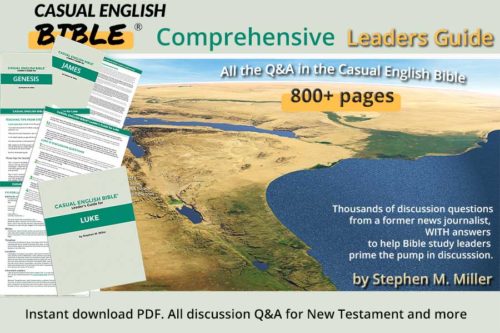Judges 17
A silver idol for worshiping God
Micah steals from his mom
1Micah was a man who lived in the hills of Ephraim’s tribe. 2He told his mother, “Remember that time 1,100 pieces of your silver [1] turned up missing? I was there when you said you hoped something bad [2] would happen to the person who took it. Well, Mom, I took it. Here it is. I’m giving it back to you now.” His mother said, “I hope the LORD treats you kindly for giving it back.”3So, Micah gave her the 1,100 pieces of silver. She told him, “I’ve decided to give this silver to the LORD. I’m entrusting it to you. So, I want you to carve a wooden image. Then use that carving to make a mold for a silver idol. [3] 4When Micah returned the money, his mother gave him 200 silver coins, [4] which he took to the silversmith. Micah kept the idol in his house. 5Micah set up his own private worship center. Inside this shrine, he had an object he used in worship [5] and another object that was used to predict the future. [6] Micah had one of his sons serve as priest. 6Israel didn’t have a king. Everybody made their own rules. It was crazy.
Levite priest in a pagan shrine
7A young man from Levi’s tribe of worship leaders lived in Bethlehem, in Judah’s tribe. 8He left Bethlehem in search of a new place to live. Along the way he came to Micah’s house, in the hills of Ephraim. 9Micah asked, “Where do you come from?” The traveler said, “I’m a Levite from Bethlehem in Judah. I’m looking for a place to live.”10Micah said, “Stay here. You can be my priest. I’ll give you food and clothes and 10 silver coins a year.” [7] So the Levite did. 11The Levite agreed to stay. In time, he became like a son to Micah. 12The Levite became Micah’s priest and lived in Micah’s house. 13Micah said, “Now that I have a Levite as a priest, I can count on the LORD to give me everything I need.” [8]
Footnotes
The currency was shekels. This is the same amount of silver each of the Philistine rulers offer to give Delilah to bribe her into betraying Samson (16:5). This was about 22 pounds or more (10 kg). Shekels came in different weights. It’s unclear how much these shekels weighed. There was a heavy shekel that weighed about 11.5 grams or .4 ounces. This was sometimes called the King’s Shekel or the Royal Shekel. Some scholars say this was also the weight used in the Israelite worship center and later in the Jerusalem Temple. The lighter shekel weighed about 9.5 grams or .33 ounces. Some scholars say this was probably the shekel accepted at the worship center.
More literally, a “curse.” In Bible times, many people seemed to believe that words spoken as blessings or curses had the supernatural power to come to life. A curse would read like a poem or a prayer condemning an enemy to defeat. Once spoken, words in a curse like that or in a blessing could not be taken back. The power of the words to change the future had been released. The curse was more than a wish or a prayer. It was apparently seen by many as the inevitable future. Yet in what follows, the mother seems to cancel the curse and replace it with a blessing.
This story was looking redemptive until Mom broke two of the Ten Commandments. “You can’t create idols in any form, whether it’s an image of something from the sky, earth, or water. You can’t worship idols or bow to them. I’m your God” (Exodus 20:4-5).
Two hundred coins isn’t 1,100. What happened to the other 900 silver coins? The writer doesn’t say. If the silversmith had to make an idol from 200 coins, it would have weighed about 4-5 pounds (2 kg).
This mysterious object was an ephod. In the time of Moses, an ephod was an apron or vest worn by the high priest. Scholars debate exactly what that looked like. Some describe it as a skirt or a shift-like garment that covered the body from about the waist to the mid-thigh. Priests used what was described as an ephod to store the sword of Goliath, after David killed this Philistine champion warrior (1 Samuel 23:9). But here, as with Gideon’s ephod (8:27), the ephod is somehow set up as an object that people could visit and worship. Some scholars suggest the Hebrew word ephod was related to the Akkadian word epattu. Assyrian writings say epattu were idols dressed in expensive clothing worn by high officials.
The second mysterious object was a teraphim. The prophet Zechariah suggests that dream interpreters used them to explain the meaning of dreams and visions and to predict the future, which Zechariah called out as lies (Zechariah 10:2).
That’s 3-4 ounces of silver, roughly 100 grams.
Micah must have felt that naming his own son as priest might not have been kosher. But with a Levite, he seemed to think the worship center had God’s approval. Well, the trouble is that this Levite was a priest at a pagan shrine with a silver god. He was no priest of the LORD. Second, not all Levites could serve as priests. Only Levites descended from Aaron’s family could serve as priests. Other Levites served in other capacities: guards at the worship center, assistants helping priests with sacrifices, artisans maintaining and repairing the worship center and accessories. If this Levite wasn’t descended from Aaron, he was like a nurse pretending to be a brain surgeon.
Discussion Questions
- Sorry, there are currently no questions for this chapter.









